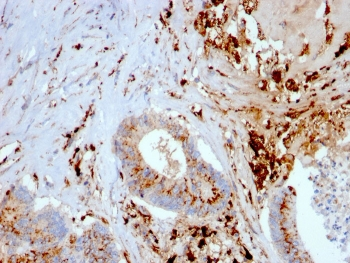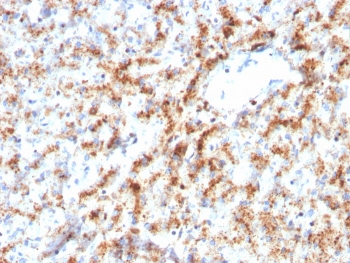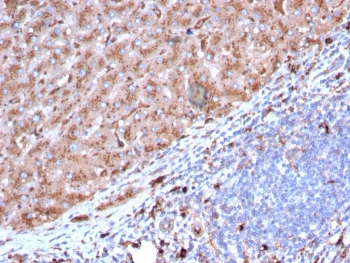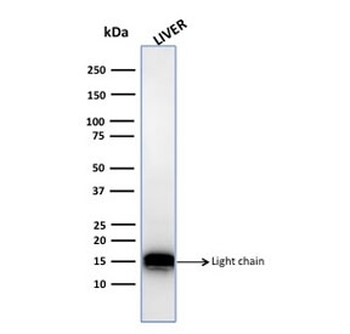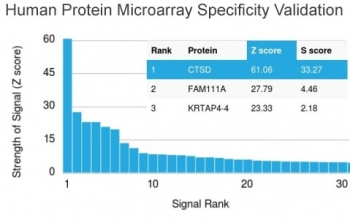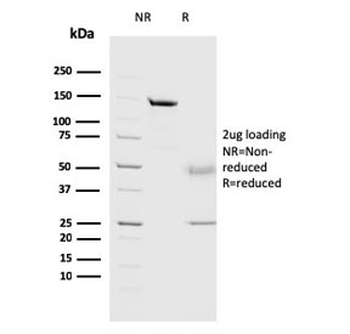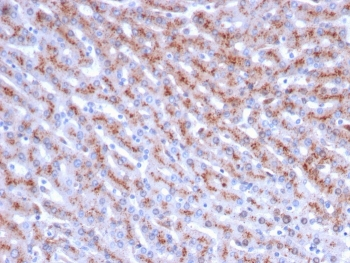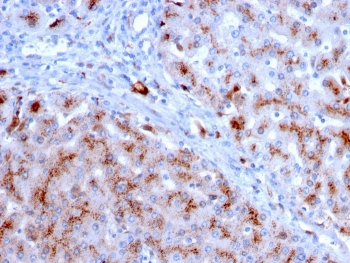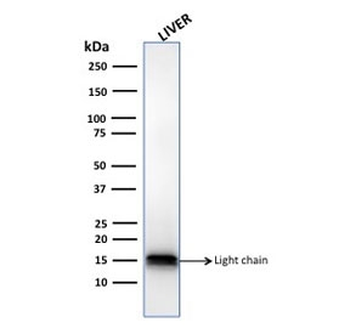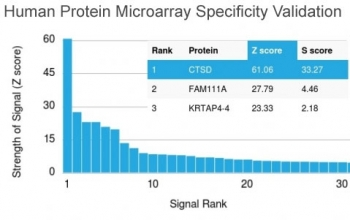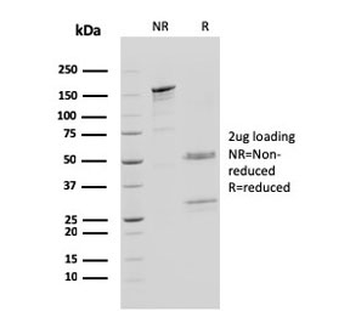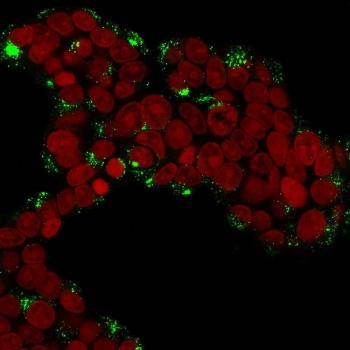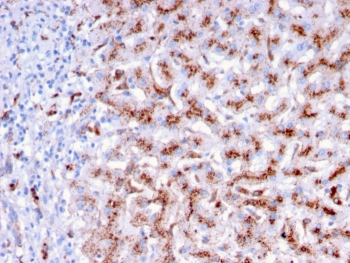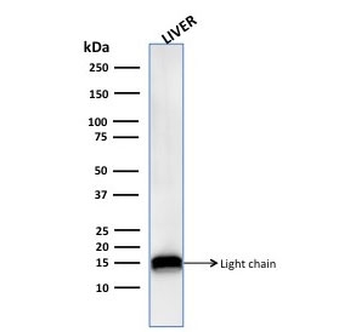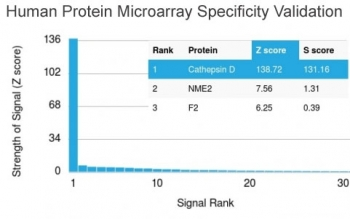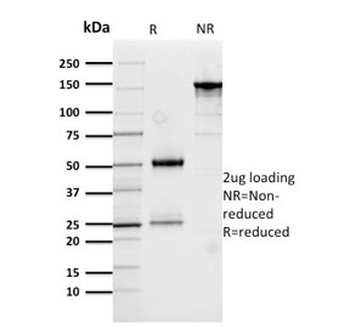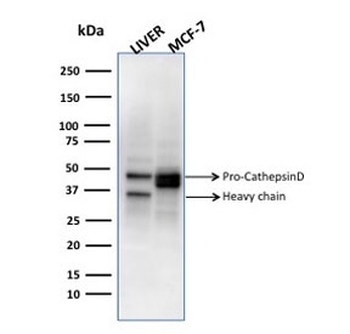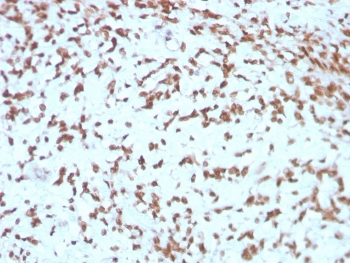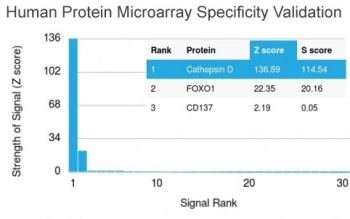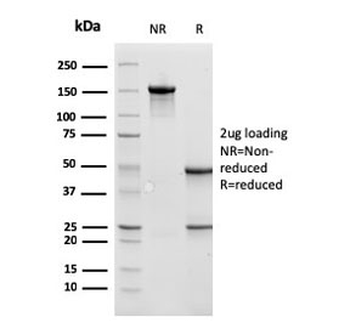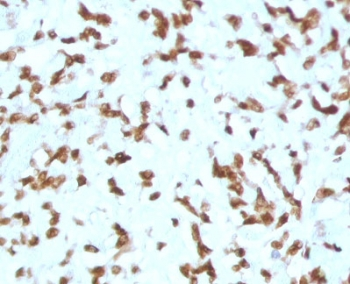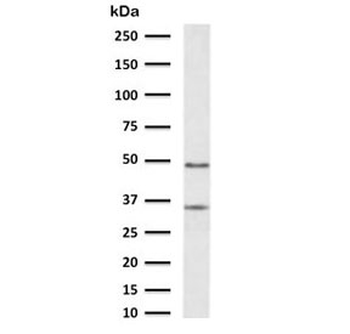You have no items in your shopping cart.
CTSD Antibody / Cathepsin D
Catalog Number: orb606940
| Catalog Number | orb606940 |
|---|---|
| Category | Antibodies |
| Description | Cathepsin D is a ubiquitously expressed lysosomal aspartyl protease involved in the normal degradation of proteins. It is synthesized as an inactive 43kDa preprocathepsin D that is cleaved and glycosylated to form a 46kDa procathepsin D and then further cleaved to produce 28kDa and 15kDa subunits (heavy and light chains, respectively). Cathepsin D exhibits pepsin-like activity and plays a role in protein turnover and in the proteolytic activation of hormones and growth factors. Mutations in this gene play a causal role in neuronal ceroid lipofuscinosis-10 and may be involved in the pathogenesis of several other diseases, including breast cancer and possibly Alzheimer's disease. |
| Species/Host | Mouse |
| Clonality | Monoclonal |
| Clone Number | CTSD/2781 |
| Tested applications | IHC-P, WB |
| Reactivity | Human |
| Isotype | Mouse IgG1, kappa |
| Immunogen | A portion of amino acids 104-250 from the human protein was used as the immunogen for the Cathepsin D antibody. |
| Dilution range | Immunohistochemistry (FFPE): 1-2ug/ml for 30 min at RT,Western blot: 1-2ug/ml |
| Purity | Protein G affinity chromatography |
| Conjugation | Unconjugated |
| Formula | 0.2 mg/ml in 1X PBS with 0.1 mg/ml BSA (US sourced) and 0.05% sodium azide |
| Hazard Information | This Cathepsin D antibody is available for research use only. |
| UniProt ID | P07339 |
| Storage | Store the Cathepsin D antibody at 2-8°C (with azide) or aliquot and store at -20°C or colder (without azide). |
| Buffer/Preservatives | 0.2 mg/ml in 1X PBS with 0.1 mg/ml rAlbumin (US sourced) and 0.05% sodium azide |
| Note | For research use only |
| Application notes | Optimal dilution of the Cathepsin D antibody to be determined by the researcher.1. The prediluted format is supplied in a dropper bottle and is optimized for use in IHC. After epitope retrieval step (if required), drip mAb solution onto the tissue section and incubate at RT for 30 min. |
| Expiration Date | 12 months from date of receipt. |
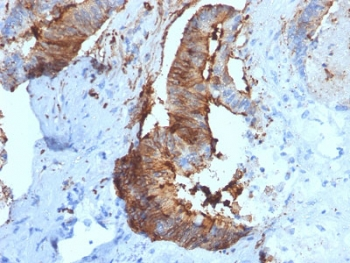
IHC testing of FFPE human renal cell carcinoma with Cathepsin D antibody (clone CTSD/2781). HIER: boil tissue sections in pH6, 10mM citrate buffer, for 10-20 min followed by cooling at RT for 20 min.
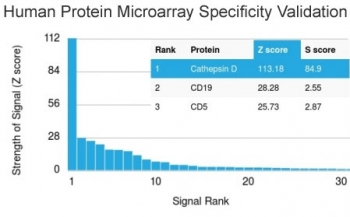
Analysis of HuProt (TM) microarray containing more than 19000 full-length human proteins using Cathepsin D antibody (clone CTSD/2781). These results demonstrate the foremost specificity of the CTSD/2781 mAb. Z- and S- score: The Z-score represents the strength of a signal that an antibody (in combination with a fluorescently-tagged anti-IgG secondary Ab) produces when binding to a particular protein on the HuProt (TM) array. Z-scores are described in units of standard deviations (SD's) above the mean value of all signals generated on that array. If the targets on the HuProt (TM) are arranged in descending order of the Z-score, the S-score is the difference (also in units of SD's) between the Z-scores. The S-score therefore represents the relative target specificity of an Ab to its intended target.
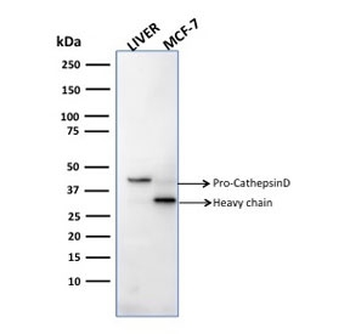
Western blot testing of human samples with Cathepsin D antibody (clone CTSD/2781).
Filter by Rating
- 5 stars
- 4 stars
- 3 stars
- 2 stars
- 1 stars


